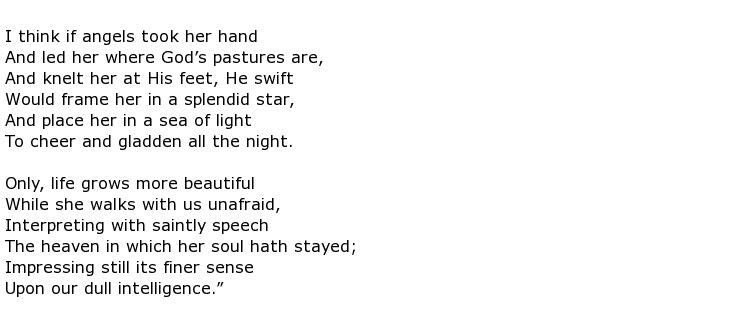ONE OF THE NAMES IN THE JENCKES FAMILY
FREELOVE
When I first found this name in our genealogy and often repeated as the generations passed, I was wishing that were my name . In my mind I renamed myself Freelove Almira .
FREELOVE
This enables me to participate in the very nature of GOD. He is Love and He loves us. But human love can be given or with held.
We can choose to love or not. One of the definitions of love is in that name--it must be free. Love cannot be coerced. That freedom is what makes our love valuable to God --we can choose not to love God.
It is only we humans who have been given the free will to choose not to be what God created us to be. Surprisingly, the environmentalist and author Bill McKibben finds hope in this unique freedom.
He writes:
FREELOVE
When I first found this name in our genealogy and often repeated as the generations passed, I was wishing that were my name . In my mind I renamed myself Freelove Almira .
FREELOVE
This enables me to participate in the very nature of GOD. He is Love and He loves us. But human love can be given or with held.
We can choose to love or not. One of the definitions of love is in that name--it must be free. Love cannot be coerced. That freedom is what makes our love valuable to God --we can choose not to love God.
It is only we humans who have been given the free will to choose not to be what God created us to be. Surprisingly, the environmentalist and author Bill McKibben finds hope in this unique freedom.
He writes:
The most curious of all . . . lives are the human ones, because we can destroy, but also because we can decide not to destroy. The turtle does what she does, and magnificently. She can’t not do it, though, any more than the beaver can decide to take a break from building dams or the bee from making honey. But if the bird’s special gift is flight, ours is the possibility of restraint. We’re the only creature who can decide not to do something we’re capable of doing. That’s our superpower, even if we exercise it too rarely.
So, yes, we can wreck the Earth as we’ve known it, killing vast numbers of ourselves and wiping out entire swaths of other life—in fact . . . we’re doing that right now. But we can also not do that. . . .
We have the tools (nonviolence chief among them) to allow us to stand up to the powerful and the reckless, and we have the fundamental idea of human solidarity that we could take as our guide. . . .
Another name for human solidarity is love, and when I think about our world in its present form, that is what overwhelms me. The human love that works to feed the hungry and clothe the naked, the love that comes together in defense of sea turtles and sea ice and of all else around us that is good. The love that lets each of us see we’re not the most important thing on earth, and makes us okay with that. . . . [2]
THE LOVE THAT CREATED US AND NEVER STOPS FOLLOWING US AND SHOWERING US WITH HIS GRACE.
The Love that Francis Thompson saw as a Hound in relentless pursuit of our souls ---
The Hound Of Heaven
By Francis Thompson (1890)
I fled Him, down the nights and down the days;
I fled Him, down the arches of the years;
I fled Him, down the labyrinthine ways
Of my own mind; and in the mist of tears
I hid from Him, and under running laughter.
Up vistaed hopes I sped;
And shot, precipitated,
Adown Titanic glooms of chasmèd fears,
From those strong Feet that followed, followed after.
But with unhurrying chase,
And unperturbèd pace,
Deliberate speed, majestic instancy,
They beat—and a Voice beat
More instant than the Feet—
‘All things betray thee, who betrayest Me.’


 r
r